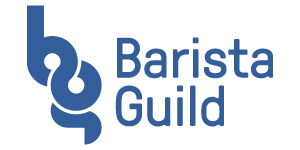Talking Barista Certificates with Lorenzo Perkins
 It was the final night of my first-ever Barista Camp at El Capitan Canyon in Southern California, and I walked up to the Nuova Simonelli machine after Italian barista champion Giorgio Milos walked by me and winked while whispering, “Good luck.” My examiner for my Level 2 exam was Heather Perry, the only female two-time United States Barista Champion. She was standing ready with two stopwatches, a pen, and a clipboard – which would become a very familiar stance of my own. My mind was racing as I was trying to imagine everything that Heather would expect a Level 2 Certified Barista to be able to do. I looked over the tables of equipment, saw the coffee I was supposed to be using, and then looked at Heather and said, “Okay, I’m ready.”
It was the final night of my first-ever Barista Camp at El Capitan Canyon in Southern California, and I walked up to the Nuova Simonelli machine after Italian barista champion Giorgio Milos walked by me and winked while whispering, “Good luck.” My examiner for my Level 2 exam was Heather Perry, the only female two-time United States Barista Champion. She was standing ready with two stopwatches, a pen, and a clipboard – which would become a very familiar stance of my own. My mind was racing as I was trying to imagine everything that Heather would expect a Level 2 Certified Barista to be able to do. I looked over the tables of equipment, saw the coffee I was supposed to be using, and then looked at Heather and said, “Okay, I’m ready.”
Four years later, I’m now sitting as the Chair of the Certificate Committee as an Executive Council Member for the BGA. I’ve lost count of the number of exams I’ve given, and I’m proud of the number of examiners that I’ve helped to train. Achieving the Level 2 Certificate not only gave me the confidence to continue pursuing this mad dream of being a professional barista, but it also connected me to a whole community of great baristas, put me in classes that asked questions I’d never thought of asking, and helped shape me into the coffee professional that I am today.
The Level 1 Certificate identifies that a barista is capable of following a broad recipe, that they have a basic understanding of the functionality of all of the equipment, and that they are generally pleasant when serving drinks. The Level 2 Certificate, on the other hand, challenges a barista to work within tighter standards, be capable of intense multitasking, and have a firm understanding of how the barista – across a large number of variables – is capable of impacting the flavor of an espresso, all while working expeditiously, calmly, cleanly, and, of course, with a gracious manner of service. Being required to dial in two grinders and maintain those parameters for the duration of the 45-minute exam, produce intentional latte art on command, prepare drinks in the most efficient manner possible, as well as demonstrate a firm understanding of how to maintain a production bar espresso machine in proper working order all seems a little overwhelming, but they are vital competencies that have served me well as I’ve continued to grow as a professional within retail specialty coffee.
The other enormous benefit to achieving a Level 2 Certificate has been the recognition within the coffee industry itself, and the networking and job opportunities that it has opened up. Anyone with enough drive can become successful in a field they are passionate about, but it always helps to have a professional degree or accreditation to your name. When I took my Level 1 Certificate Exam, I was an hourly barista working for a great local coffee shop, and now I am running the entire education department for a wholesale coffee roasting company as well as developing the e-learning program for the Specialty Coffee Association of America. True, I was nervous about taking the exam, allowing myself to being critiqued by some of the world’s best baristas, all of my flaws and shortcomings exposed, but it turns out it was one of the best professional decisions I’ve made in my career.
